Year: 2020
Christmas Greetings from ELM!
Merry Christmas
from your friends at ELM!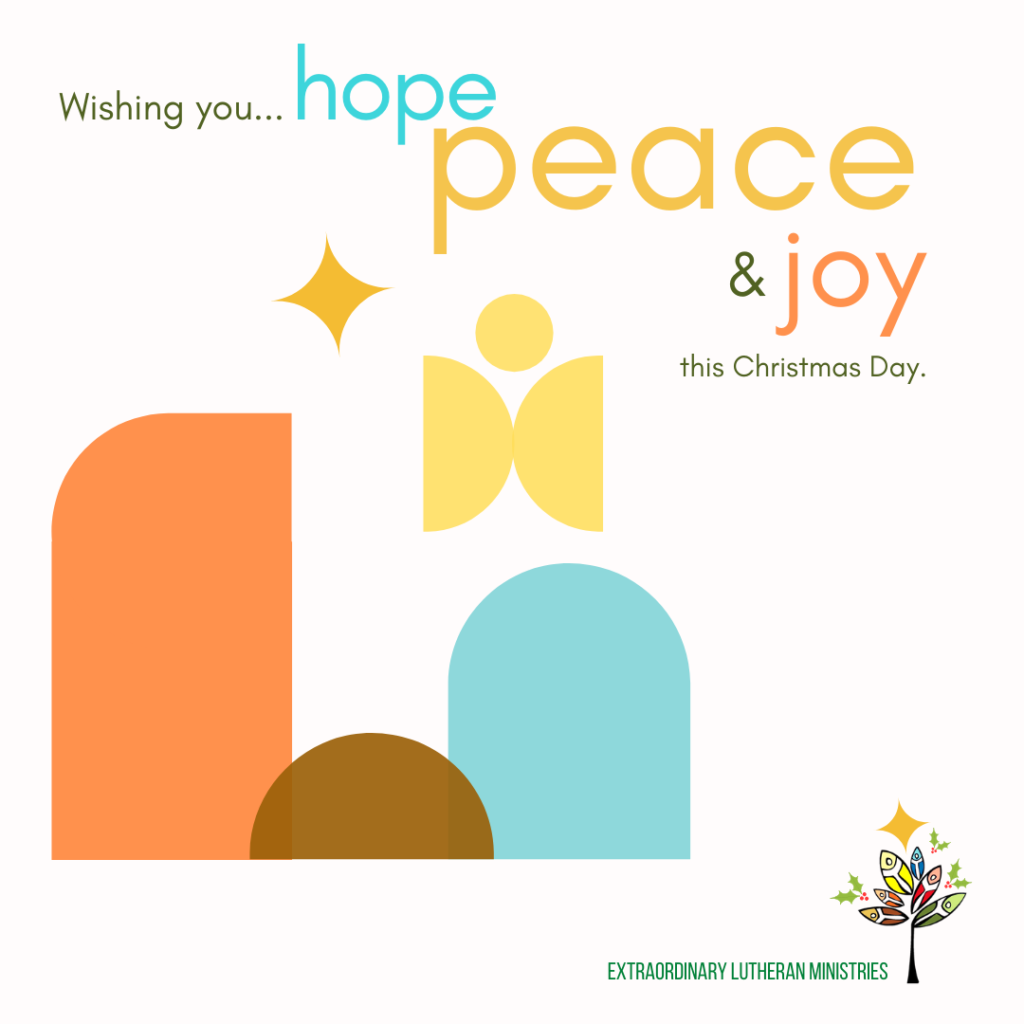
If the songs fall flat this year and the traditions don’t live up to their usual warmth, that’s okay. Christ, Immanuel, is in our midst and with us in our grief.
The love that came into the world on that day continues to surround us, and our resilience as the beloveds of Christ is greater than we may realize.
May you and yours find the place in your body and spirit where the spark of that unconditional love resides and cherish it this blessed Christmastide.
ELM Statement
On Thursday, November 26th, ELM posted a GIF to our Facebook and Instagram accounts that included the phrase “Happy Thanksgiving.” In sharing this message without further analysis of the holiday and the narratives it perpetuates, ELM was complicit in the erasure of both the current and historic experiences of oppression and genocide that our Indigenous siblings face. For this, we are deeply sorry and repent our actions.
In our efforts to deepen our knowledge and awareness of both the historical and contemporary struggles faced by Native communities, ELM’s staff commit to additional training and learning. We will acknowledge the stolen land on which we reside at both in-person and virtual meetings and will get to know the histories of the Indigenous nations in the communities in which we reside.
We commend the videos below to you, our community, as they have been commended to us by Native friends of ELM. We also invite you to join us in our efforts to grow in awareness and appreciation for the gifts of our Indigenous siblings.
The Harsh Truth About Thanksgiving – Now This
Why These Native Americans Observe a National Day of Mourning Each Thanksgiving – Huffington Post
ELM Advent Haiku: Anna Gordy
This Advent season members of the Proclaim community have graciously offered moments of reflection with Advent-inspired haiku. We hope you take this time to reflect, wait, & prepare for what new life might lay ahead. Peace. 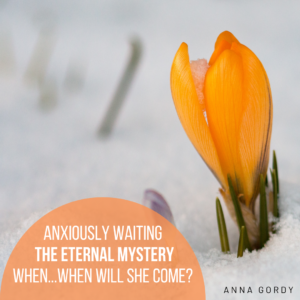
* Photo Description: Scene of a flower petal blooming in snow, with the words: Anxiously waiting, the eternal mystery, when…when will she come? Haiku by: Anna Gordy.
ELM Advent Haiku: Reed Fowler
This Advent season members of the Proclaim community have graciously offered moments of reflection with Advent-inspired haiku’s. We hope you take this time to reflect, wait, & prepare for what new life might lay ahead. Peace. 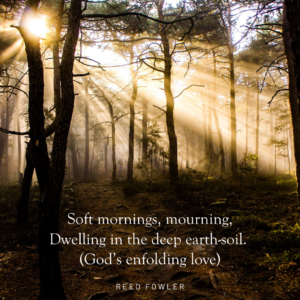
* Photo Description: Scene of the sun peering through a forest with the words “Soft mornings, mourning, Dwelling in the deep earth-soil. (God’s enfolding love)” on the forest floor. Haiku by Reed Fowler.
World AIDS Day

“Those People”
an excerpt from
Dear God, I Am Gay- Thank you
by Joel Workin
CW: mentions of scriptural ableist language
First, I want to say that God hates AIDS. God hates the suffering, the dying, the agony and loss that AIDS causes, just as God hated the disease, death and blindness and suffering of Jesus’ time. God hates it. God does not cause AIDS, nor is AIDS God’s judgment or punishment on anyone. There is no one in this church whose life is immune from tragedy- death, hardships, sorrows, maybe AIDS- bad and horrible things happen to us all, but this does not mean that God is punishing us with each bad thing that happens. We live in a fallen world. Bad things happen- to good and to bad people. Good things happen- to bad and to good people. God can maybe use the bad, can turn it into good, but God still hates it and does not cause it. The God who came to earth to be with the sick and the outcast, to give sight to the blind, and to set the prisoner free, who came to wipe away every tear from our eyes- this God is not up in heaven zapping those people with illness.
…
Now I know that many people in this room know what it is to be one of those people. Some of you know what it is like to be stared at in stores and restaurants because you are different. Some of you know what it is like to be discarded and disregarded at work, overlooked for a promotion because you are one of those people. But it seems to me many of us have also experienced that when the world rejects, God accepts. Because we know we have the love of God who will not refuse or abuse, discard or disregard. Others may have left us, but God is with us. Others may say no, but God says yes. Others may say, “You are one of those people,” but God says, “You are one of my people.”
What Jesus says is this- that God came to earth to be with those people, the outcasts and the discarded. And since that is so, then let us each say this: “Lord, let me be one of those people. Let me be one of those people who love too much. Let me be one of those people who sits with and eats with the refused and abused. Let me be one of those people who knows that perfect love casts out all fear. Let me be one of those people who knows that ‘in Christ there is no east or west, no north or south, but one great fellowship of love, close binding humankind.’ Yes, Lord, make me one of those people. I have been refused by the world, now let me be infused by your love.”
Amen.
 Joel Raydon Workin (1961-1995) was born in Fargo, ND, and grew up on a farm in nearby Walcott. He received his Master of Divinity from Pacific Lutheran Theological Seminary, Berkeley, CA. In 1986 Joel interned at Holy Trinity Lutheran Church, Inglewood, CA.
Joel Raydon Workin (1961-1995) was born in Fargo, ND, and grew up on a farm in nearby Walcott. He received his Master of Divinity from Pacific Lutheran Theological Seminary, Berkeley, CA. In 1986 Joel interned at Holy Trinity Lutheran Church, Inglewood, CA.An Update from the ELM Board of Directors!
Greetings from the ELM Board of Directors!
Thank you for the extraordinary support you continue to provide ELM and the LGBTQIA+ leaders we serve! Your ongoing commitment to our organization inspires and empowers us to continue in our belief that the public witness of gender and sexual minority ministers transforms the church and enriches the world.
No doubt, you will not be surprised to hear that 2020 has been a year unlike any in the recent history of ELM. Some of the plans and priorities we set at the start of this year have had to be paused or delayed in getting going as our Board and staff adapted to the realities of a global pandemic.
Canceling the 2020 Proclaim Gathering was a hard and sad decision to make — the staff and many of the Proclaim members and Spice (Spouses of Proclaim members) on the Board know how integral that event is to the sustained care and celebration of our community. We are proud of the ELM staff and volunteers for the ways they have continued to buoy our community through creative programming and unceasing advocacy.
This fall, the ELM Board of Directors made significant progress in our strategic planning efforts as we look to discern ELM’s mission and vision in our current time and context. We engaged a visioning consultant as well as strategic conversation partners to help our Board and staff articulate both who ELM is and how we engage our mission in the church and in the world today as well as into the next five years. We are excited to share the results of our work with you in the new year!
ELM is an organization that takes anti-oppression seriously and strives to be anti-racist in all of the ways we engage both our ELM community and the wider community of the church and world. As such, the ELM Board underwent the first of a two-part training on ableism at our fall retreat and we continue our efforts to interrogate and review existing policies and practices while at the same time creating new organizational documents that help to articulate our values and give shape to how we function as a staff, Board, and community.
We are thrilled that the ELM Endowment will be making its first grants this winter to ministry partners who share ELM’s commitment to lifting up and supporting queer ministries and leaders. The ELM Board anticipates receiving recommendations from the ELM Endowment Committee (Peter Beeson, Amanda Gerken-Nelson, Jim Kowalski — chair, Margaret Moreland, and Margarette Ouji) at our December meeting with announcements and grants offered in early 2021. Thank you to Blanche Grube and Joe McMahon, who rest in light eternal, for their love and shared belief in our mission that inspired them to set the foundation for this Endowment. And, our thanks go to all of you who have ELM as part of your estate plan who will continue to make bold, faithful, queer ministries possible for years to come!
Finally, our thanks to our fellow ELM Board of Directors for their dedication, passion, and wisdom which help to fan the flame of our movement and to ensure ELM remains the beacon of hope, liberation, and justice for all queer leaders we strive to be.
With joy,
Emily Ann Garcia, Co-Chair
Matthew James, Co-Chair
The ELM Board of Directors
Emily Ann Garcia, Co-Chair
Vancouver, BC
Matthew James, Co-Chair
Racine, WI
JM Longworth, Secretary
Rutland, VT
Jan Peterson, Treasurer
Omaha, NE
Kelsey Brown
Brooklyn, NY
Jessica Davis
Norristown, PA
Emily E. Ewing
Des Moines, IA
Jeff Johnson
Berkeley, CA
Margarette Ouji
Berkeley, CA
Suzannah Porter
Baltimore, MD
Clyde Andrew Walter
Glenview, IL
A Post-Election Pastoral Letter by ELM Executive Director, Rev. Amanda Gerken-Nelson
On Holy Saturday, when believers find ourselves in the liminal space of “Yes! And, not yet!” we have a tradition of gathering for a great vigil. With the elements of fire and water to accompany us, we allow the grief and unknowing of the moment to take refuge in the company of the communion of saints, as we, together, nestle into the great wonder and mystery of God.
It is in this tender moment when we retell the stories of our faith that remind us that it is God who created us into being! It is God who parted the seas and liberated her people! It is God who breathed new life into dry bones! It is God who saved Daniel in the den!
It is God who is the great, creative wonder of the universe that raised Christ from death to life!
We locate ourselves in this narrative not simply as a tonic for our temporary woes. We locate ourselves in this great narrative to settle into the truth of God’s reign, which is from everlasting to everlasting.
Throughout God’s narrative, there have been kings and rulers and presidents — some great and some greedy. And, none of them are the saviors of the world; that is Christ alone.
We should not seek to find Christ in Caesar’s palace — Christ has not and will never reside there.
Christ resides with the poor and the desolate. Christ marches in the uprisings for Black lives. Christ huddles with the caged children in their cells. Christ tends to the under-employed and uninsured. Christ dwells with those without house or home.
It is there we will find Christ in the world — where we will find real truth and hope and purpose.
This neither dismisses our duty to vote nor our strong calling to participate in the systems that govern our daily lives — those are acts of Christian love that seek to ensure that the Christian values of radical love and justice are embodied in those systems which have so much responsibility and power over God’s people — the very people with whom Christ resides.
Embedding ourselves in the great narrative of God and reminding ourselves of Christ’s presence in the world is a practice not meant to admonish our actions but to ground them.
No matter the queen or ruler or president who resides in Caesar’s palace, “Our soul waits for the Lord; they are our help and shield. Our heart is glad in them, because we trust in their holy name. Let your steadfast love, O God, be upon us, even as we hope in you.” (Psalm 30:20-22)
“The Art of Enduring, For Holy Saturday” by Jan Richardson
This blessing
can wait as long
as you can.
Longer.
This blessing
began eons ago
and knows the art
of enduring.
This blessing
has passed
through ages
and generations,
witnessed the turning
of centuries,
weathered the spiraling
of history.
This blessing
is in no rush.
This blessing
will plant itself
by your door.
This blessing
will keep vigil
and chant prayers.
This blessing
will bring a friend
for company.
This blessing
will pack a lunch
and a thermos
of coffee.
This blessing
will bide
its sweet time
until it hears
the beginning
of breath,
the stirring
of limbs,
the stretching,
reaching,
rising
of what had lain
dead within you
and is ready
to return.
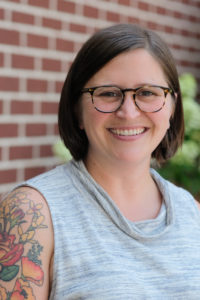 Amanda Gerken-Nelson (she/her/hers) — Amanda has not missed participating in an election since turning 18. Amanda gives thanks to her elders and comrades who have paved the paths for her right to vote, for agency over her body, to live publicly out, to be legally married, and to start a family.
Amanda Gerken-Nelson (she/her/hers) — Amanda has not missed participating in an election since turning 18. Amanda gives thanks to her elders and comrades who have paved the paths for her right to vote, for agency over her body, to live publicly out, to be legally married, and to start a family.
Faith & Politics: Rev. Matt James
Do you not know that all of us who have been baptized into Christ Jesus were baptized into his death? Therefore we have been buried with him by baptism into death, so that, just as Christ was raised from the dead by the glory of the Father, so we too might walk in newness of life. For if we have been united with him in a death like his, we will certainly be united with him in a resurrection like his. (Romans 6.3-5)
We spend much our lives not knowing, well, much of anything really! Especially about our faith, that’s why they call it faith right?! But it feels like lately, and especially right now, as we look to what everyone is calling a historic election, I don’t know of anyone who feels certain about the outcome of the election and what it may bring, whatever the results may be, whenever the results may be…
And I don’t really have any wise words of counsel or deep words of wisdom to alleviate all that this unknowing brings.
So we remain in this state of uncomfortable unknowing. Unknowing about the future of the United States of America. Unknowing about the future legitimacy-by-the-state of many of our relationships. Unknowing about how or whether our beautiful Brown, Black, trans, non-binary, queer bodies will ever be fully honored, fully embraced, fully protected by our elected officials.
But in the midst of this unknowing, all I can do, all I can manage really, is to trust in what I do know: my life, my identity as one baptized into the death and resurrection of my sibling, Jesus Christ. God’s own, God in the flesh, God who came to walk with us, and live with us, and whom we die with right alongside. It is my Savior, my Redeemer, the God who has seen multitudes of my forebears through the full expanse of what humanity might experience: pain and pleasure, sorrow and joy; fear and gladness; life and death. This is a God, I know can, has, and will hold me through all the days of my life.
And so dear ones, as you gather together in your communities, in whatever form that means for you. As we, together, wait and watch for what the future holds, know that I hold you in gentle prayer, know that your God, your beloved Creator, Redeemer, and, yes, Sustainer holds you in the days, weeks, months, and years ahead.
As we wait and watch, let us pray:
Holy One, Loving Creator,
You name us, and know us, and love us down to the last atom of our being. In the uncertainties, and doubts, and fears that these days throw at us. We thank you for the sure and certain knowledge of your lovingkindness poured out on your whole creation.
We commend all that we have, all that we are: our decision making, our candidates and elected leaders, our fears, our anxieties, our mental illness, our protest, our joy, our beloved communities; Our whole being, O God, we commend to you.
In these days ahead, send us your Spirit and keep watch Divine One, that we may know your gentle presence, your overflowing grace, and your fierce love, made real to us in your Beloved, Jesus Christ, our Sibling, and our Redeemer. Amen.
May it be so, dear friends, may it be so.
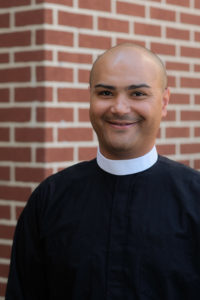
Matt James, Co-Chair, ELM Board
Faith & Politics: JM Longworth
Luke 13:31-33 (CEB)
31 At that time, some Pharisees approached Jesus and said, “Go! Get away from here, because Herod wants to kill you.”
32 Jesus said to them, “Go, tell that fox, ‘Look, I’m throwing out demons and healing people today and tomorrow, and on the third day I will complete my work. 33 However, it’s necessary for me to travel today, tomorrow, and the next day because it’s impossible for a prophet to be killed outside of Jerusalem.’
I long for a spirit of love, kindness, and compassion to come upon our national discourse, because ultimately, without loving each other deeply, there can be no genuine movement towards the common good. As a student of American Government and the Constitution in college, I am profoundly aware that everything about our system was designed to slow things down, temper the passions of the day, and make change difficult through a series of interlocking and divided powers. Most of the substantial political and policy change in the United States was made through partisan wave elections where one party swamped the other, through triangulation where divided government meant that executives of one party tried to outflank the opposition by taking over their issues, or through constitutional crises where executives have invented new powers in times of emergency that allowed them to ignore the system of shared powers.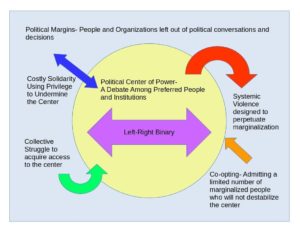
Our two-party system creates the illusion that American political life consists of a simple left-right binary and that this is the defining feature of our political landscape. I’ve included the diagram above to try and pull back to a broader view of our system and to illustrate some convictions that I have about my participation in public life that are grounded in my faith, my queerness, and the experience that I’ve never found binaries to be a particularly convincing narrative.
My first conviction is that political systems include insiders and outsiders, and while these groups aren’t always the same, there tends to be a great deal of stability in this divide. When I think about this theologically, I am reminded that many of the key struggles in the scripture were not against individuals and their personalities, but rather against whole systems (slavery in Egypt, exile in Babylon, persecution by Rome) We live in a system that favors white, heterosexual, married, cisgender, able-bodied, neurotypical, men above all else. In the realm of political diversity, two people who fit this description have far more in common than not, regardless of their place on the binary. What often looks like a grand debate between different parts of the political spectrum is actually an argument inside the center of power. Sometimes this tug of war results in a public good that has an impact on both the center and the margins, for example, the widely popular programs of the Social Security Administration. More often, the outcomes look like the center engaging the margins with apathy, paternalism, or even outright hostility. In this understanding of our system, it’s possible for policy and legislation to be made that is broadly bi-partisan because there is a common understanding in the center about which groups in the margins it is acceptable to harm through government action without losing popular support. Let that sink in for a moment, we live in a system where some people and communities matter so little or not at all, and therefore it is possible to harm them without political repercussions. Which brings me to my second conviction.
It isn’t possible to create a human system of living arrangements without harm. If you’re a fan of the comedy The Good Place, you know that we can never get enough points to become totally good. While this is not an excuse to abandon the pursuit of the common good, to imagine that we can conjure the best outcomes for all people at all times is a beautiful and ultimately fruitless goal. Decisions have consequences, costs, unintended side effects, and in some cases, far-reaching consequences that we are terrible at predicting. Worse yet, we often focus most of our political discourse on intentions and proposals, while often ignoring the outcomes and the impact. We give ourselves over to the sin of staying with policies that are deleterious because they seem right in theory when in reality they are destructive. Controlling the political center means in large part controlling the amount and intensity of violence directed at the margins. Though sometimes the injustice reaches a point of changed consciousness. Conviction number three- people can have their worldview radically changed.
Changed consciousness takes different forms, but the theological framework for this process is conversion or repentance. Suddenly, something cannot go on any longer. It can look like marginalized people banding together, perhaps even with willing collaborators, and telling each other their story of being harmed, recognizing that it must stop, and putting direct public pressure on the center through protest, organizing, social disruption, boycotts, and even property destruction to raise the cost of the ongoing harm. The goal is often to push the center into recognizing that it is too costly to continue the harm. The larger the coalition and the more disruptive it can be to normal patterns of life, the larger the political cost of ignoring it. Sometimes the center is disrupted to the point where people in the center begin to disagree vehemently about whether certain forms of harm are acceptable. This can feel like a failure of the system, but I believe that it is the price paid for the new awareness. People in the center who experience this shift in understanding have a responsibility to be aware of their role in the system, an appreciation of how previous behaviors contributed to communal harm, and a willingness to make changed behavior (as opposed to doubling down, self-negation, or performative pity) one of their primary responses. It helps to be awake, it helps even more to get out of bed. This brings me to my final conviction, the Holy Spirit transforms my consciousness in order to transform my living and I am called to engage the system differently, especially where my identity puts me in the center.
The center has a lot of power to respond to people’s struggle against the harm being done to them. They can scapegoat the group, change the subject, create distractions and even increase the amount and intensity of violence with the hopes that this will break the spirit of the coalition. Sometimes, people in the center will focus on token acts of inclusion and attempt to co-opt the movement by drawing a small selection of people into the center, improving their treatment, and expecting them to become evangelists for the system instead of their own liberation. What’s more painful and deflating than the formerly marginalized minority scolding the unruly nastiness of the people who haven’t made it in yet?
As a follower of Jesus who experiences some marginalization, but also a great deal of centering, I find myself wrestling with the dual temptation of avoiding invitations to be co-opted, and making such invitations myself. Part of what makes Jesus compelling for me is the way he embodies how the center should be- simultaneously aware of power and authority, and ready to face the cost so that his neighbors could know life, liberation, and love. The gift of the Cross is a revelation that God has broken the power of Sin, not the backs of individual sinners. I find myself challenged in my relationship with Christ and in my relationships with people I love to look for chances to practice costly solidarity- using my privilege to help dismantle and curtail the systems that are killing my neighbors and naming my marginalization and experiences of harm to support others who share these experiences. I try to approach voting, public speaking before government officials, letter writing, protest, material support for people in struggle, and even acts of resistance with this conviction firmly in mind. I hope that you find space for costly solidarity in your practice too, the movement for liberation needs collaborators far more than allies. I leave you with this prayer from Fr. Mychal Judge, OFM that we often use to begin our weekly time as street chaplains.
Oh Lord,
Take us where you need me to go.
Have us meet the people you need us to meet.
Tell us what to say.
And please, keep us out of your way.
In Jesus Name, Amen.
 The Rev. JM Longworth, (they/them) OEF lives in Rutland, VT where they serve as the pastor of Good Shepherd Lutheran Church and co-pastor of Faith on Foot. Currently, they serve as dean of the Vermont/New York Conference of the New England Synod and as a member of the Core Team for New England Anti-Racism. They are a life professed member of the Order of Ecumenical Franciscans.
The Rev. JM Longworth, (they/them) OEF lives in Rutland, VT where they serve as the pastor of Good Shepherd Lutheran Church and co-pastor of Faith on Foot. Currently, they serve as dean of the Vermont/New York Conference of the New England Synod and as a member of the Core Team for New England Anti-Racism. They are a life professed member of the Order of Ecumenical Franciscans.
